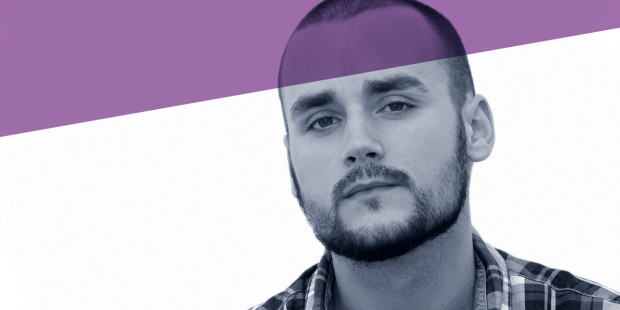Our online counselling service has continued to offer support to anyone living with HIV in the UK throughout the COVID-19 pandemic. It’s been a popular service, responding to worsening mental health for many over the last 18 months.
We’re currently aiming to widen access to our support services so that our service users more accurately reflect the diversity of people living with HIV.
Currently, around 80% of our counselling users are (mostly gay or bisexual) men and 20% are women. About 70% of our users identify as ‘white British’ or ‘white other’ with fewer than 10% identifying as ‘Black African’ or ‘Black other’. In contrast, 31% of people living with HIV in the UK are women, and 38% of people being newly diagnosed are from Black or other minority ethnic backgrounds.
What prevents people from using our counselling services
In summer 2021, we carried out research with service users to gain insight into the experiences and views of women and people from racially minoritised backgrounds. During interviews and focus groups, we asked about their use of talking therapies such as counselling, psychotherapy and group support. In particular, we wanted to know what prevents or discourages them from using services.
Our findings
Encouragingly, counselling was valued by many service users and seen as an important part of their healing and recovery. However, we found a number of barriers to people using counselling services.
Barriers to people using counselling services
Cultural issues
Talking about mental health is difficult for many of us, but feelings of shame and embarrassment came up a lot, particularly among respondents from a Black African background.
One woman commented: ‘Mental health is a taboo in Africa, is a sign of weakness.' Another said: ‘There is pride in saying African people are strong.' The stigma around HIV and the fear of being negatively judged when sharing a diagnosis was also deeply felt. As one man put it: ‘I do not want people to know... I rather die in silence.' Referring to a therapist in the NHS as not having an understanding of cross-cultural working, one man said: ‘I am here to talk about my problems, not to educate someone else.'
Privacy and confidentiality
Privacy and confidentiality was a concern expressed. A Black African mother talked about ‘social services becoming involved’ when a woman talks about her own mental health. There were also concerns around the privacy of accessing services from home, with the fear of children overhearing an online counselling session.
Some service users, particularly women, expressed a view that Terrence Higgins Trust wasn’t for them and was perceived as only providing services for gay men.
Increasing uptake of counselling services
While discussing barriers, we also identified what users find as supportive factors around accessing support and building mutual trust with a service provider. This information can help us make changes and improvements.
- We need to ensure that our counselling and emotional support services are seen as more relevant to Black communities and for women more generally.
- Counselling information on websites, in clinics and in other communications needs to better represent these audiences through its imagery and messaging so that people recognise themselves and their issues.
- Services need to become more friendly and approachable. This might include providing more direct, personal communications, such as follow-up phone calls with service users.
- Offering a more flexible service by providing evening and weekend counselling to cater for the needs of women with childcare responsibilities. Providing in-person as well as online counselling options was also seen as important.
Our next steps
We can implement some of the research recommendations within our own counselling service quickly and easily. In the medium to long term, we need to ensure the development of better cultural competency, provide tailored training to frontline staff and counsellors, and increase the number of counsellors from BAME backgrounds. The living well team at Terrence Higgins Trust will start to introduce and embed these changes and monitor their impact over the coming year.



